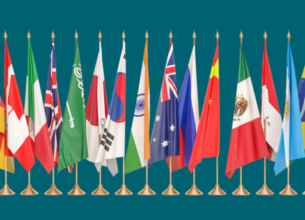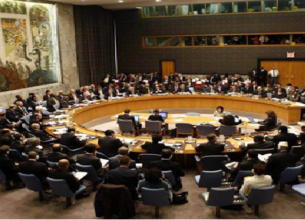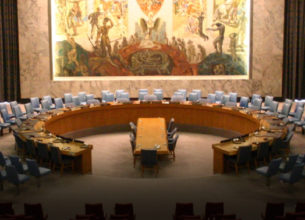UN Security Council (UNSC)
UN Security Council (UNSC)
Why in News?
- Recently, India assumed the monthly rotating presidency of the UN Security Council (UNSC) for the second time in its two-year tenure as an elected member of the Council in 2021-22
Highlights
- India will hold a “high-level open debate” on “Maintenance of International Peace and Security: New Orientation for Reformed Multilateralism (NORMS)” at the Security Council.
- The NORMS envisages reforms in the current multilateral architecture, with the UN at its centre, to make it more representative and fit for purpose
- The other signature event planned is the high-level briefing on the theme “Threats to International Peace and Security Caused by Terrorist Acts: Global Approach to Counter Terrorism — Challenges and Way Forward”.
- This briefing intends to underscore the necessity of collective and coordinated efforts to combat the menace of terrorism.
- The Security Council was established by the UN Charter in 1945. It is one of the six principal organs of the United Nations.
- The other 5 organs of the United Nations are—the General Assembly (UNGA), the Trusteeship Council, the Economic and Social Council, the International Court of Justice, and the Secretariat.
- The UNSC, with a mandate to maintain international peace and security, is the centrepiece of global multilateralism.
- The Secretary-General is appointed by the General Assembly, on the recommendation of the Security Council.
- The UNSC and UNGA jointly elect judges to the International Court of Justice
- The UNSC is composed of 15 members: 5 permanent and 10 non-permanent.
- Five permanent members: China, France, the Russian Federation, the United Kingdom, and the United States.
- UNSC should realise there are more pressing issues to be tackled at the global level than merely preserving the prerogatives of P5 nations.
- There needs to be urgent correction of the power imbalance between the P5 and the rest of the world.
- In order to protect faith in the principles of the United Nations, in its charter, and in reformed multilateralism as a key to achieving global goals, the core issues in UNSC must be critically examined and addressed with global cooperation.











